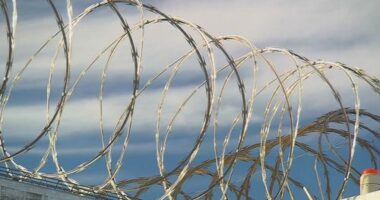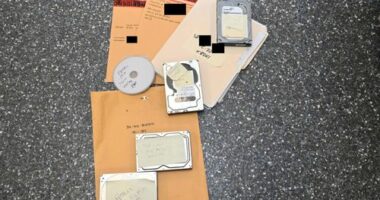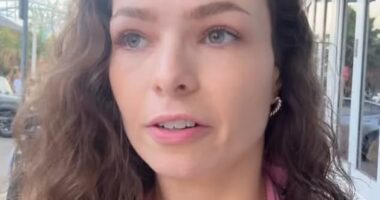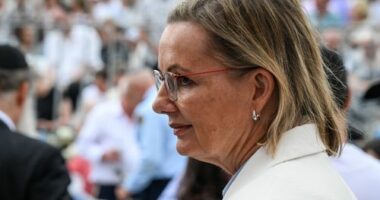Share this @internewscast.com

It’s Moss’s first time competing in a rodeo. Over the next two days, they’ll compete for a coveted Arizona belt buckle against dozens of ropers, wranglers and riders who have come from all over the country.

Gay rodeos started in the 1970s to create a more inclusive space and raise funds for LGBTIQ+ causes while engaging in one of America’s favourite traditions. Source: SBS / Josh McAtamney
Rodeos are a beloved tradition in regional America, featuring events such as bull riding, calf roping, and pole bending. Gay rodeos started in the 1970s to create a more inclusive space and raise funds for LGBTIQ+ causes. These rodeos added in special events like goat dressing, where contestants try to put underwear on a goat.
For 40 years, Arizona’s gay rodeo — one of the largest in the US — has provided a safe space for LGBTIQ+ folks like Moss to enjoy one of America’s favourite pastimes.

Since the 1970s, gay rodeos have provided an inclusive space to people of all sexual orientations and raised funds for LGBTIQ+ causes. Source: SBS / Josh McAtamney
But Donald Trump’s re-election as the US president has threatened this, fuelling a rise in anti-LGBTIQ+ sentiment and dividing the gay rodeo community over trans rights in the process.
“That’s one of the reasons why there’s so many people at this event competing, because it feels safe inside these gates.”
LGBTIQ+ rights under threat
Critics say the new administration’s focus has emboldened state lawmakers to repeal the remaining civil rights of the LGBTIQ+ community.

Arizona State senator John Kavanagh has introduced 73 bills, which critics called ‘anti-LGBTQI’, during his nearly two decades in office. Source: SBS / Josh McAtamney
In Arizona, state senator John Kavanagh has introduced dozens of laws during his 18-year tenure that critics call anti-LGBTIQ+. He defends his latest proposed bill that prohibits teachers from using students’ preferred pronouns without parental permission.
This argument has divided the gay rodeo community into those who support trans rights and gender fluidity and those who don’t, says Moss.

For decades, gay rodeos provided a safe and inclusive space for LGBTIQ+ people and raised funds for the community causes. Source: SBS / Josh McAtamney
“There’s a lot of elder gays, as we call them,” Moss says. “They had years of struggle and sometimes, with folks of the older generations — it’s harder for them to grasp the idea of gender identity.
“Sometimes they’re still very black-and-white binary.”
Backsliding
Veteran organisers still keep a tight rein on how gender identity is expressed at the Arizona Gay Rodeo.
Richard, who asked to only use his first name, recalls the inaugural Arizona gay rodeo in 1986. The owner of the largest hat store in the state, he was one of just two vendors at the event.

Richard, the owner of the largest hat store in Phoenix, says he still faces violence because of his LGBTIQ+ allyship. Source: SBS / Josh McAtamney
“The first rodeo I remember going in, [protesters] had big placards and they were hitting our cars and screaming all kinds of obscenities,” Richard says.












